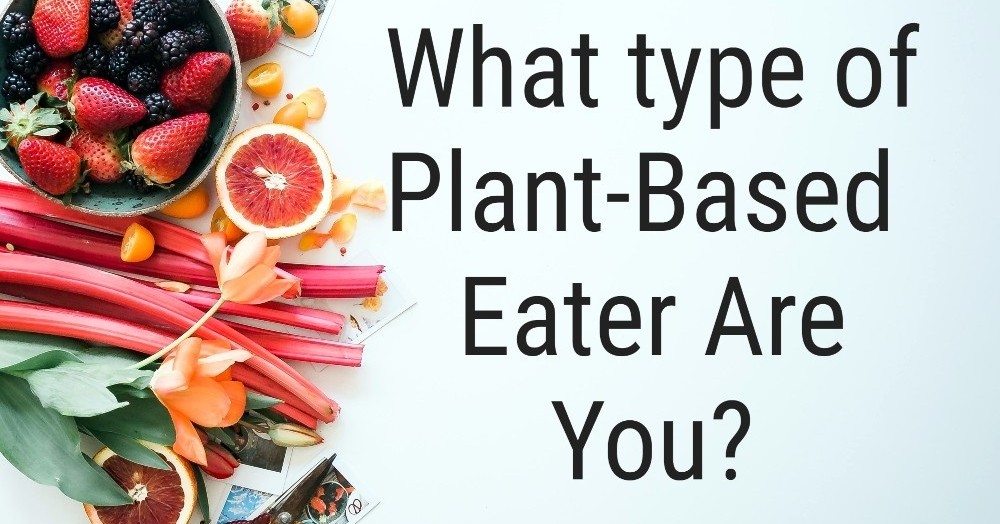If you’re looking to get healthy and lose weight, a plant-based diet is the way to go. And there are many different types of plant based diets that restrict animal products and are considered plant based. For example, veganism is a type of plant-based diet where no animal products are consumed at all. However, there are other types of diets that still allow for some consumption of animal products but limit it significantly compared to what most people eat on average. You can also choose from 9 different types of diets that restrict animal products and are considered plant based here!
A plant-based diet is a great way to eat healthy and lose weight. Plant foods are naturally low in fat, high in fiber, and packed with vitamins and minerals. They’re also free of cholesterol and animal products that can lead to heart disease. If you’re looking for an easy way to get healthy and lose weight it is the ticket!
Attention: Do you want to get healthy and lose weight?
The best part about these diets is they don’t require any calorie counting or portion control because they focus on eating whole foods instead! This means you won’t have to worry about feeling hungry or deprived while trying out one of these healthy ways to eat! Plus, with so many options available, there’s something for everyone whether your goal is losing weight or just improving your overall health. Click this link right now if you want more information on how we can help you reach your goals today!
Reach your Goals Faster
You don’t have to give up all the food you love or spend hours cooking complicated recipes. Just follow one of our 8 different types of diets that restrict animal products and are considered plant based. It’s simple – just choose a plan from our list below! We’ve done all the hard work for you so it’ll be easy as 1-2-3! All we ask is that you stick with it long enough for you to get healthy 🙂 Let’s do this together today! Click here now to find out more.
All of the different diets below do stress eating a lot more plant-based foods. Vegetables, fruit, grains, seeds, nuts, legumes.
- Vegan (or total vegetarian): In this diet, you cannot eat any animal products, especially meat, seafood, poultry, eggs, and dairy products. Does not require consumption of whole foods or restrict fat or refined sugar.

The vegan diet is a great way to reduce your environmental footprint and become healthier. It requires no consumption of meat, seafood, poultry eggs, or dairy products. So it is probably the best diet for the planet! Plus, with all those whole foods restrictions in place, people usually find themselves feeling energized rather than sluggish like they might on other less restrictive meal plans. You will probably have to take B12 since that is one of the vitamins missing on a Vegan diet.
Vegans must avoid any animal-based ingredients including honey since bees sometimes collect royal jelly from queen larvae before turning into queens themselves so their babies are technically still unborn animals when harvested for human consumption
- Raw food, vegan: This diet is the same as veganism as well and all foods that are cooked at temperatures less than 118°F.
Raw food, vegan: This diet is the same as veganism but with one exception. No food or food that was previously prepared can be cooked at temperatures less than 118°F.
The idea is that cooked foods cannot be eaten on a raw vegan diet because they would not possess the same nutritional value without heating them above 118°F (48 °C).
A raw vegetarian or vegan lifestyle can be considered by many to have many health benefits including weight loss and reduced risk of heart disease compared with an omnivorous lifestyle that includes meat-eating habits.
The raw food diet and veganism have many similarities, but there are some key differences. One of these is that cooked foods cannot be eaten on a raw vegan diet because they would not possess the same nutritional value without heating them above 118°F (48 °C).
- Lacto-vegetarian: On this diet, there are no eggs, meat, seafood, and poultry and includes milk products.
The Lacto-vegetarian diet is a standard for those who want to eat more vegetables and less meat. The name literally means “milk eater,” as its restriction includes no egg or dairy products, but does allow for other types of milk such as yogurt and cheese.
- Ovo-vegetarian: For this diet, you do not eat meat, seafood, poultry, and dairy products and that includes eggs.
For those who are looking to cut down on the amount of meat they eat, an ovo-vegetarian diet may be for you. This type of eating plan consists mainly of plant-based foods like fruits and vegetables as well as eggs. But no animal flesh or diary products such as milk, cheese, yogurt.
- Lacto-Ovo vegetarian: Excludes meat, seafood, and poultry and includes eggs and dairy products.

The Lacto-ovo-vegetarian diet is a plant-based one that does not contain any meat or seafood. But you can eat eggs and still enjoy dairy products such as milk and cheese. Of course, you can see how this diet would not work for you if you have a milk allergy. In Europe where people aren’t typically allergic to milk because they use cow’s yogurt which has been fermented by bacterial cultures instead because raw unpasteurized versions.
- Mediterranean: A plant-based diet that allows small amounts of chicken, dairy products, eggs, and red meat once or twice per month. Fish and olive oil are encouraged. Fat is not restricted to the Mediterranean diet.
The Mediterranean diet is a plant-based eating plan that allows The Mediterranean diet is a plant-based eating plan that allows small amounts of red meat, sweets, and salmon.
The traditional way to eat healthy in this type of cuisine relies heavily upon olive oil while using vegetables such as eggplant or tomatoes among other things like grains generally found within salads at most meals along with some form of dairy. Eggs and chickens are fine in moderation. It’s considered by many scientists who study food science to support heart health because it limits your intake of saturated fats, but does not restrict fat.
- Whole foods, plant-based, low-fat: Encourages plant foods in their whole form, especially vegetables, fruits, legumes, and seeds, and a small number of nuts. For maximal health benefits, this diet limits animal products. Fat is generally restricted on the whole food plant-based, low-fat diet.
A whole-foods, plant-based diet is the best way to eat. One that includes plenty of vegetables and fruits with a small amount (about four servings) each day from legumes or seeds like Hemp for protein; plus one serving made up primarily out of nuts will help you feel fuller longer too! Try cutting down on animal products as well – they’re not good for our health after all…
A perfect example would be an individual who eats this style every single day:
- Flexitarian: A diet that a person who has primarily eaten a plant-based diet but occasionally eats meat or fish.
A flexitarian is someone who identifies as a vegetarian but still eats meat and fish on occasion. They understand that the health benefits of a plant-based diet. It’s more for compassionate or environmental reasons rather than any obligation towards animals in farming practices
- Pescatarian: A diet that puts an emphasis on plant-based foods, fish, and seafood may provide health benefits. Fish is a good source of protein.
A diet that puts an emphasis on plant-based foods, fish, and seafood may provide health benefits. Reducing your intake of meat can help you stay slim while having the protein needed for thriving day-to-day life without worrying about getting enough nutrients from other sources like grains or legumes!
A plant-based diet can be very useful for those looking to lose weight. Not only does it help you slim down, but eating healthier also has other benefits like boosting your energy levels and preventing many different chronic diseases. It is much better for the environment too.
Plant-based Diets were Associated with a Reduced Risk of Cardiovascular Disease and Mortality Compared With Non-plant-based Diets
The Dietary Advisory Committee also performed a 2010 literature review on the effects of plant-based diets on stroke, cardiovascular disease, and death in adults. Their conclusion after looking at many studies found that plant-based diets were associated with a reduced risk of cardiovascular disease and mortality compared with non-plant-based diets. So no matter which one you pick, you will no doubt get healthier!
Sign up for our newsletter below and receive weekly updates straight into your inbox as well as access to free guides and resources related specifically towards helping people like yourself achieve their health goals quickly and easily!









Leave A Comment